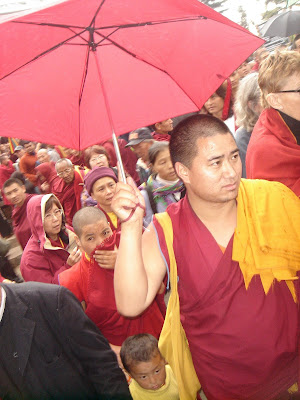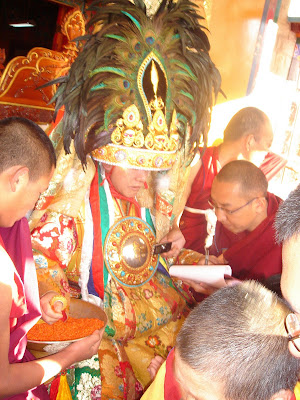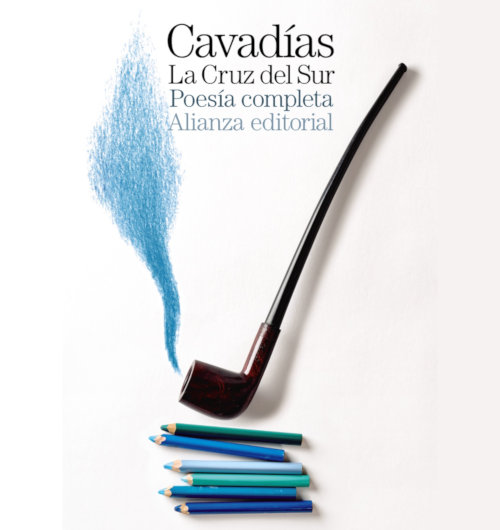Under the rainbow
McLeod Ganj, Dharamsala
"A Western disturbance," the papers say, is causing severe precipitation all over the subcontinent - even in the desert of Rajasthan, and normally arid south India. My Chinese friend is on her way to Jammu and Kashmir on a government bus, but she must be snowed-in, because the paper says the J&K Highway is closed for snowfall.
over the subcontinent - even in the desert of Rajasthan, and normally arid south India. My Chinese friend is on her way to Jammu and Kashmir on a government bus, but she must be snowed-in, because the paper says the J&K Highway is closed for snowfall.
Here, we just got beating down hard rain, several hailstorms, and severe, cable-snapping winds.
There are two advantages to such crappy weather - one, everyone looks like hell so there is no need to fix my hair, or even shower or wash my hair - it's too cold to even take my clothes off (even for a hot shower). Most people are sleeping with their clothes, gloves and hats on anyway. Makeup is a long-foregone pretension and dirty hair is hidden under my fake-fur hat (the kind we used to call, in the hip-hop days, a "Kremlin hat"). I am wearing my heaviest pair of (cotton) pants, a t-shirt, my cotton chupa, and a flannel nightshirt over it all, with the fleece jacket zipped up all day long. Many people appear to be wearing every item of clothing they own.
The second advantage is that, since the rain is so cold and hard and relentless, fewer people show up for teachings, and that means if you are an early bird (I am not), you can get a good seat very near to the Dalai Lama. Or, at least near enough to sit under his benevolent "blessing" hand as he walks by on the ways in and out.
There's also the fact that such frigid weather makes me crave starchy foods. I hope my body is burning it off with the constant walking up and down steep hills and staircases. Dharamsala is not a place for the physically challenged - or even for those with a serious knee problem.
Finally, last night
Finally. The rain finally stopped last night - just in time for the Long Life Ceremony this morning, for HH the Dalai Lama. An amazing double rainbow came out over the Kangra Valley, just around 6pm, before sunset.
This morning's (thankfully dry) Long Life Ceremony was graced by none other than HH the Karmapa (head of the Kagyu lineage), HH Sakya Trizin (head of the Sakya lineage), and the head of the Nyingma lineage (whose name always escapes me). It turned out (news to me) that some people, even foreigners, had come and saved seats upstairs the night before (usually upstairs is only for monks). Some people arrived as early as 5.30 AM to ensure their seating. Live and learn.
The ceremony featured "special appearances by" not only the Nechung Ora cle but two more traditional oracles of other regions of Tibet, representing Amdo, Kham and U Tsang. Evidently there are no less than four oracles residing in McLeod and many more traditionally in Tibet and Bhutan. Each "channels" or manifests a different god when they go into trance. Though I didn't get upstairs, my Taiwanese friend got video of the oracles. When they collapse after the trance, they are immediately carried out like corpses feet-first.
cle but two more traditional oracles of other regions of Tibet, representing Amdo, Kham and U Tsang. Evidently there are no less than four oracles residing in McLeod and many more traditionally in Tibet and Bhutan. Each "channels" or manifests a different god when they go into trance. Though I didn't get upstairs, my Taiwanese friend got video of the oracles. When they collapse after the trance, they are immediately carried out like corpses feet-first.
McLeod Ganj, Dharamsala
"A Western disturbance," the papers say, is causing severe precipitation all
 over the subcontinent - even in the desert of Rajasthan, and normally arid south India. My Chinese friend is on her way to Jammu and Kashmir on a government bus, but she must be snowed-in, because the paper says the J&K Highway is closed for snowfall.
over the subcontinent - even in the desert of Rajasthan, and normally arid south India. My Chinese friend is on her way to Jammu and Kashmir on a government bus, but she must be snowed-in, because the paper says the J&K Highway is closed for snowfall. Here, we just got beating down hard rain, several hailstorms, and severe, cable-snapping winds.
There are two advantages to such crappy weather - one, everyone looks like hell so there is no need to fix my hair, or even shower or wash my hair - it's too cold to even take my clothes off (even for a hot shower). Most people are sleeping with their clothes, gloves and hats on anyway. Makeup is a long-foregone pretension and dirty hair is hidden under my fake-fur hat (the kind we used to call, in the hip-hop days, a "Kremlin hat"). I am wearing my heaviest pair of (cotton) pants, a t-shirt, my cotton chupa, and a flannel nightshirt over it all, with the fleece jacket zipped up all day long. Many people appear to be wearing every item of clothing they own.
The second advantage is that, since the rain is so cold and hard and relentless, fewer people show up for teachings, and that means if you are an early bird (I am not), you can get a good seat very near to the Dalai Lama. Or, at least near enough to sit under his benevolent "blessing" hand as he walks by on the ways in and out.
There's also the fact that such frigid weather makes me crave starchy foods. I hope my body is burning it off with the constant walking up and down steep hills and staircases. Dharamsala is not a place for the physically challenged - or even for those with a serious knee problem.
Finally, last night
Finally. The rain finally stopped last night - just in time for the Long Life Ceremony this morning, for HH the Dalai Lama. An amazing double rainbow came out over the Kangra Valley, just around 6pm, before sunset.
This morning's (thankfully dry) Long Life Ceremony was graced by none other than HH the Karmapa (head of the Kagyu lineage), HH Sakya Trizin (head of the Sakya lineage), and the head of the Nyingma lineage (whose name always escapes me). It turned out (news to me) that some people, even foreigners, had come and saved seats upstairs the night before (usually upstairs is only for monks). Some people arrived as early as 5.30 AM to ensure their seating. Live and learn.
The ceremony featured "special appearances by" not only the Nechung Ora
(At left: Nechung Oracle manifesting the god Dorje Drakden in a trance at the Nechung Monastery, March 7 2007)
After the ceremony, HH had private (that is, about 100 people at a time) audiences for the Russians, Ukrainians, Mongolians and new Tibetans. The explanation I got was that he gives these audiences for countries where he cannot travel freely (like Russia) because of the country's relations with China. However, I know he did go to Mongolia just last year. Not fair!
Also, I heard later that a German girl snuck in with the Russians. You have to get a piece of paper from security - but they don't know who's Russian and who isn't. Then the whole crowd of 100 or so Russians goes together and has to show passports. But, because there are so many people, they don't really examine all passports - just look to see if the face matches the picture inside.
Okay, now I know the deal.
Mongolians, Russians and Ukrainians all understand Russian - so they get audience together. Everything is translated from Tibetan into Russian.
I caught two Ukrainian kids as they emerged glowing from the HH residence. What did he say?
"It was very short - less than half an hour," Sergei said. "But he said that in general, it was better for people to stay with their own religion, the religion they were born into. To change religions arbitrarily creates confusion and misunderstanding for a lot of people. But, if you do want to be Buddhist and practice Buddhism, it is very important to study - and study well. To really understand the concepts and what they mean - not just go through the motions. And His Holiness was very serious when he said this - not joking, like in the teachings!"
On the road, for real
At rainbow time (6 pm), I was in the Shangri-la restaurant, run by the monks of a monastery. In America, a restaurant where you are waited on by monks would be some kind of novelty theme chain (with a cutesy name like "The Monkery").
I was with Lama Sherab Gyaltsen, the monk who prostrated all the way from Lhasa to BodhGaya, India. Sherab speaks no English at all, but was accompanied by a translating friend, Passang. (Passang is another monk. Most Tibetan names are bi-gendered, that is, Passang, Tenzin, Tashi and so on can be either male or female.)
Back in January, I went to find Sherab on the Patna-Gaya Highway in Bihar. I had read an Indian news report about the "Tibetan monk crawling from Lhasa for world peace" and wanted to interview him and photograph him for myself. I spent two amazing days with him, his two Tibetan companions and the Bihari villagers, who lined the roads to alternately stare and support him - bringing him foodstuffs and water at day's end. They seemed to regard him as a modern-day yogi-saint or "tapaswi" (one who does severe devotional austerities) out of some Vedic-era mythology. Certainly they did not hesitate to "pranam" him (devotional salute) and instantly recognized what he was doing as in the Indian tradition of devotion.
Sherab was explaining how he got permission, from the Chinese government, to exit Chinese Tibet and enter Nepal while prostrating. He had to get some kind of special religious-pilgrimage visa - lots of paperwork. People from his home town of Dege, Kham district had to vouch for him ("he really is a monk and devotee, he is not just escaping, he is for real" and so on). The fact that he is from Kham - now considered part of Qinghai province or China proper - helps a lot. People dwelling in Lhasa or other parts of the TAR ("Tibetan Autonomous Region") are considered more of a political risk and have a harder time getting travel documents.
I had my trusty laptop Tawanda with me, and made a disk for Sherab of all the photos and videos I'd taken of him while he was literally "on the road." He insisted on buying me dinner, and paying for all the CDs (a welcome change from most Indians and Nepalis, who expect YOU, the rich firang, to pay for everything) and requested a second CD of the videos "for my mother."
Sherab had gotten press notices from the BBC, Times of India, Asian Age, Jagran Dainik and a few other Hindi language papers. However, I was special - according to him - because they were all Indian. (The BBC sent a local Hindi-speaking correspondent.) I was "the only English person" who had come to see him.
On our way home
It's always with a combination of sadness and relief that I watch the crowds pack up and go home after a teaching. Sadness, because it's so great to be in huge (if sometimes maddening) crowds of people who have converged for such an elevated cause. I mean, contrast 7,000 people coming together to receive Buddhist teachings from a Nobel laureate with the energy of 7,000 people - for example - gathered at music festival to get drunk and get laid. Or at a political convention, or a football game.
Relief, because finally I will be able to walk down the street and end up where I had originally intended to go, without several people sidetracking me - and will be able to get a table in one of the dimly-lit, always crowded restaurants of McLeod Ganj, where people huddle against the chill drinking Hot Lemon Ginger and catch up on who's going where, which Rinpoche is in town and who's getting teachings from whom.
And, of course, the next reading of the Oracle or Oracles.














No comments:
Post a Comment